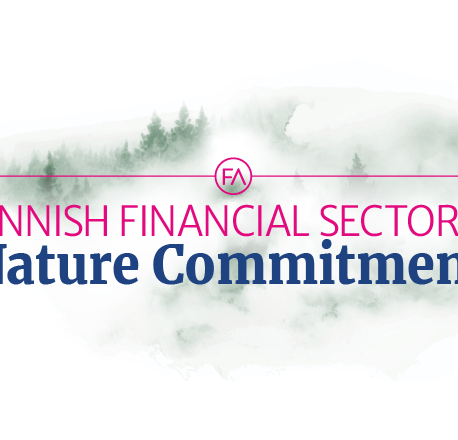
- Danske Bank is the world’s first large bank to quit financing oil and gas exploration and production (E&P) companies working to expand oil and gas extraction.
- The decision has made international headlines.
- This article is part of an article series showcasing Finance Finland member organisations’ concrete actions to promote the green transition.
The Danish lender Danske Bank has made international headlines for its decision to be the world’s first large bank to quit financing oil and gas exploration and production (E&P) companies working to expand oil and gas extraction.
Danske Bank operates in the Nordic countries, so the decision applies mostly to Norwegian oil and gas companies. The other Nordic countries do not practice oil and gas exploration and production on a similar scale.
Danske Bank’s Global Head of Sustainable Finance Samu Slotte admits that the decision was not an easy one.
“We considered it for a long time and from many different angles. Although oil and gas companies do not make up a very large part of Danske’s corporate lending, the business we were about to quit was not insignificant.”
Danske Bank thought long and hard of what criteria to choose for restricting its fossil fuel finance. In the end, the bank chose to go with the International Energy Agency’s (IEA) Net Zero Emissions by 2050 scenario.
According to the Net Zero Emissions by 2050 scenario, no new oil and gas fields should be approved for development anywhere in the world if the world is to stay within safe limits of global warming. The output from existing fields must suffice to cover the humanity’s needs.
In line with the IEA’s scenario, Danske Bank decided in early 2023 to quit financing E&P companies looking to expand to new fields. Because all of Danske Bank’s Norwegian oil and gas company clients are planning new output, the decision means that Danske Bank will effectively quit financing the oil and gas industry altogether.
“We will of course honour all our existing loan contracts to oil and gas companies. The last of them are set to mature by 2030”, Slotte says.
Danske Bank also considered in advance how its decision will affect its goal of increasing financing for climate-friendly energy production.
“Many companies that own shares in oil and gas companies are currently planning new, climate-friendly energy production. We hope that our decision will not affect our chances of financing this green energy business”, Slotte says.
Danske Bank’s bold call was unequivocally positive for the climate, but it was also justified in terms of risk management.
Slotte points out that many banks are likely to quit financing oil and gas production sooner or later. From the banks’ perspective, this involves a refinancing risk.
“As the availability of financing drops, banks may have difficulty choosing when to break away from oil and gas companies.”
“I bet nobody wants to be the last lender financing fossil fuels.”
If an oil or gas company needed to refinance a maturing €1 billion credit, for example, and wanted its five servicing banks to all keep their current loan shares of €200 million, what would happen if only four of the banks were willing to keep financing the oil and gas industry?
For one of the banks to withdraw its financing, the other four would either have to increase their share of the loan or have a new bank step in. But the debt capital markets are limited, and it is uncertain how long into the future banks are willing to finance companies looking to expand the supply of oil and gas.
The COP28 UN Climate Change Conference in Dubai closed with a final agreement that for the first time ever called on all nations to transition away from fossil fuels.
According to Slotte, the global pact made at the COP28 in December further highlighted the risks associated with financing oil and gas companies. “Now that nations have made a global commitment to transition away from fossil fuels, it is no longer justified for any country to increase its oil or gas production, at least not on a large scale.”
Still have questions?
|Contact our experts
Looking for more?
Other articles on the topic

Hooray for simplifying regulation! But obligations must be streamlined thoughtfully, without compromising environmental goals

Preventing biodiversity loss must be given top priority – also in business

Sustainable finance reporting requirements must not be reduced at the expense of the environment

Finnish financial sector signs nature commitment to enhance the transparency of its biodiversity action




